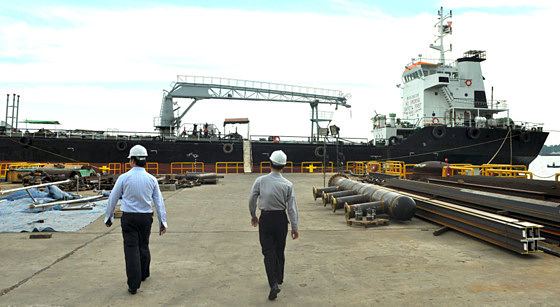This article was recently published on Kyith Ng's blog and is republished with permission.
|
It is not only ship charterers that default on trusts. |
Based on the annual rental (and embedded rental escalations) agreed with the vendor, our investment team ran a full rental cashflow for the remaining 23 years of the lease and the resulting property yield and internal rate of return (IRR) are in line with SoilbuildREIT’s investment criteria. As such, we feel that the final purchase price for the property is justified.
There is nothing wrong with this thesis.
I came to the conclusion that as long as the financial figures are done with good knowledge of historical and future scenarios and conservatively estimated, if the IRR is good, they should go for it. Short land lease would mean they need to do more work in the future to replenish the cash flow of the REIT.
It's just that not many think that a “charterer” would default on their charter.
This evening, Soilbuild Business Trust announced the following:

Soilbuild Business is attempting to claim SG$2 mil in rent, an SG$11.8 mil in security deposit for the second year of rent, and any interest owed during the period they did not pay the rent.
This may become a bit long drawn but I would classify it as a distressed situation.
We learnt this from FSL Trust’s case. The IRR figures are not wrong. It's just that you have not considered the counterparty risk.
 "Those deals are splendid. It is a tenant that pays you consistent cash flow for the majority of the lifespan of the asset, with little variability in expenses. You can then structure cheap financing to match this duration and you can compute your rate of return easily. "Those deals are splendid. It is a tenant that pays you consistent cash flow for the majority of the lifespan of the asset, with little variability in expenses. You can then structure cheap financing to match this duration and you can compute your rate of return easily.This thesis breaks down when the tenant defaults on you. No matter how long the lease with how good an annual escalation, if the counterparty defaults, you have a problem." -- Kyith Ng (photo) |
And we raised the fact that Soilbuild have a large composition exposed to the distressed oil and gas sector.
This is something I worried for charters such as Singapore Shipping Corporation whose ships are chartered to “blue chip charterers” for 10 to 15 years.
Those deals are splendid. It is a tenant that pays you consistent cash flow for the majority of the lifespan of the asset, with little variability in expenses. You can then structure cheap financing to match this duration and you can compute your rate of return easily.
This thesis breaks down when the tenant defaults on you. No matter how long the lease with how good an annual escalation, if the counterparty defaults, you have a problem.
One of Cache Logistics’ recent Australia purchase is an example. It has been leased for a long period of time with great escalation to Metcash Trading, which is posting some loss numbers and is struggling.
It is not only ships that will be in a rut. Every assets will have their time.
Though I reckon in the worst case scenario it may be easier for Soilbuild Business to rent out the premises to another tenant at a lower rent, rather than leave it empty.








